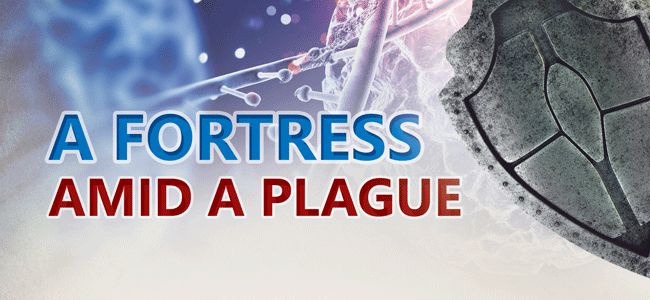A Time for Big Changes

The year is 1527. The highly contagious bubonic plague is invading the continent of Europe. Not long before, in October 1347, the “Black Death” had hit so hard that from among those contaminated by it, nearly half died. And now, Martin Luther is being perceived as the divider of society. While the Protestants are regarding the pestilence as a token of the wrath of God because of the Roman apostasy, the Catholics are accusing the Protestants for disrupting Christian unity in the time of such terrible crisis.
Now it is August 1527; the city of Wittenberg is being visited by the plague. The government represented by Elector John “the Steadfast,” among many decisions, orders the personnel of the University of Wittenberg to move their activities to a different area.
Katharina von Bora, Luther’s wife, is pregnant with their second baby. Their older son is struck by the plague and for almost eight days has not eaten anything. Luther is in great distress. His dilemma: To leave or to stay? The sense of duty and his conscience are calling him to stay to help those afflicted, many of whom are counting their days or even hours of life. And now the plague is visiting his home, too.
Katharina refuses to leave. Luther, on one hand, is amazed and on the other hand encouraged and boosted by her firm stand. This is not the first time that Katharina has served him lessons of faith in a time of crisis. Luther is now determined; he will confront death in the name of Jesus. He is getting out, helping the dying and giving communion in the church, praying with the ones who are discouraged, satisfying the need of the soul. He is at peace with his God. While serving his fellow neighbors, his heart is at home with his wife and his son who is struggling for life.
The news is soon communicated to Luther: His son is well; he is healing. Tears of joy and gratitude towards the heavenly Father overflow the heart of the reformer. It would not be surprising to consider that possibly in those exact days of struggle is when the Holy Spirit inspires him to write, “A mighty fortress is our God, a bulwark never failing; our helper he, amid the flood of mortal ills prevailing. For still our ancient foe does seek to work us woe; his craft and power are great, and armed with cruel hate, on earth is not his equal,” or maybe as Katharina recovers from the pestilence, Luther may be writing his definition of faith in the second verse of the song: “Did we in our own strength confide, our striving would be losing, were not the right Man on our side, the Man of God’s own choosing. You ask who that may be? Christ Jesus, it is he; Lord Sabaoth his name, from age to age the same; and he must win the battle.”
We don’t want to nail down a specific moment identified in the life of Luther that may have triggered that avalanche of inspired words, but what is certain is that the lyrics of the hymn show the waves of experience in the ups and downs of Luther’s life. When his daughter d ied, his courage did not fail. He continued to feed his faith with the words of the song: “And though this world, with devils filled, should threaten to undo us, we will not fear, for God has willed his truth to triumph through us. The prince of darkness grim, we tremble not for him; his rage we can endure, for lo! his doom is sure; one little word shall fell him.”
Just as Luther did, so we as Christians exposed to the same present crisis, defined in modern language as COVID-19 or even another plague worse that this one, can and will, by God’s grace stand with Luther in singing the last verse: “That Word above all earthly powers no thanks to them abideth; the Spirit and the gifts are ours through him who with us sideth. Let goods and kindred go, this mortal life also; the body they may kill: God’s truth abideth still; his kingdom is forever!”
“So God help us.”